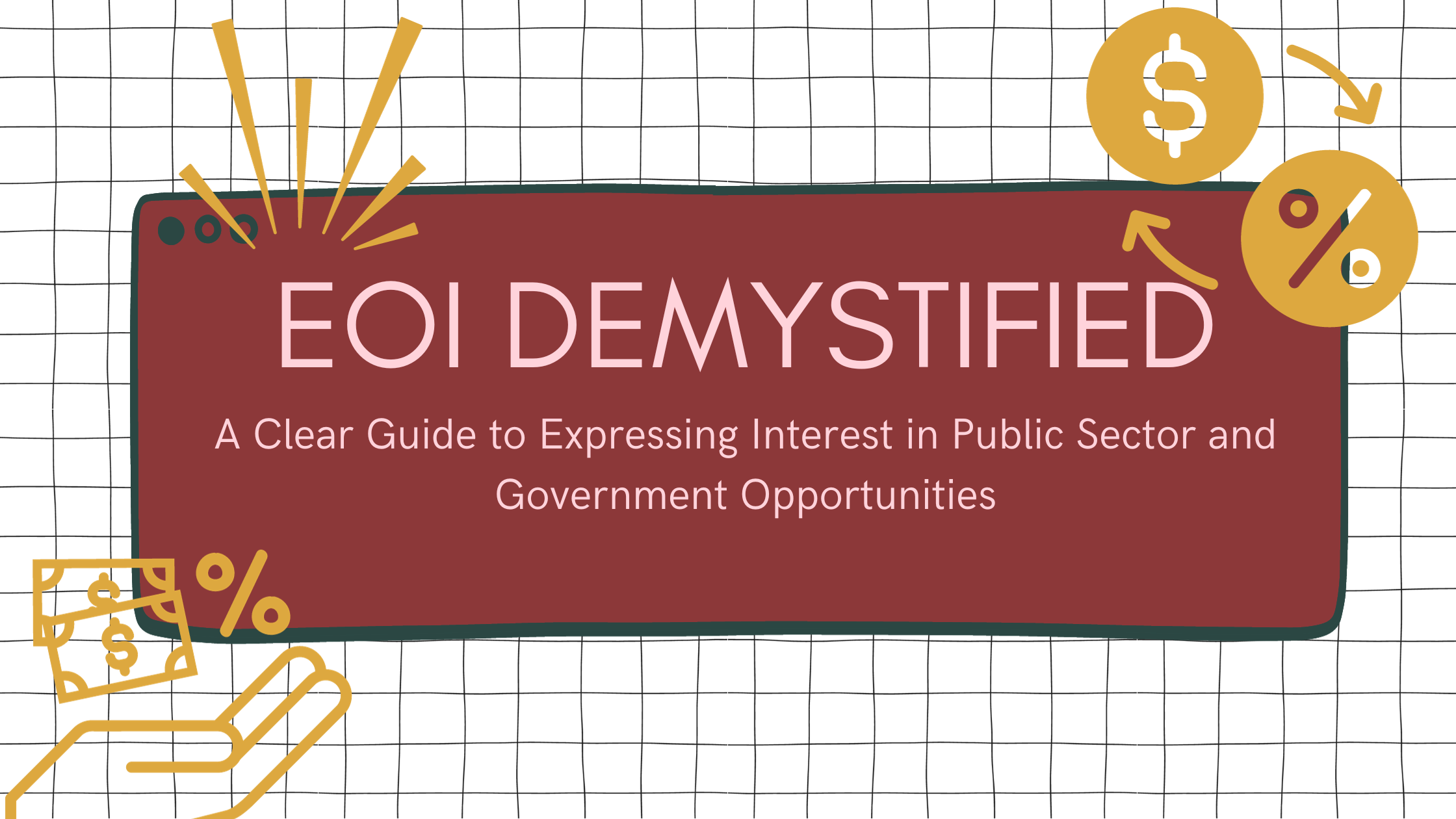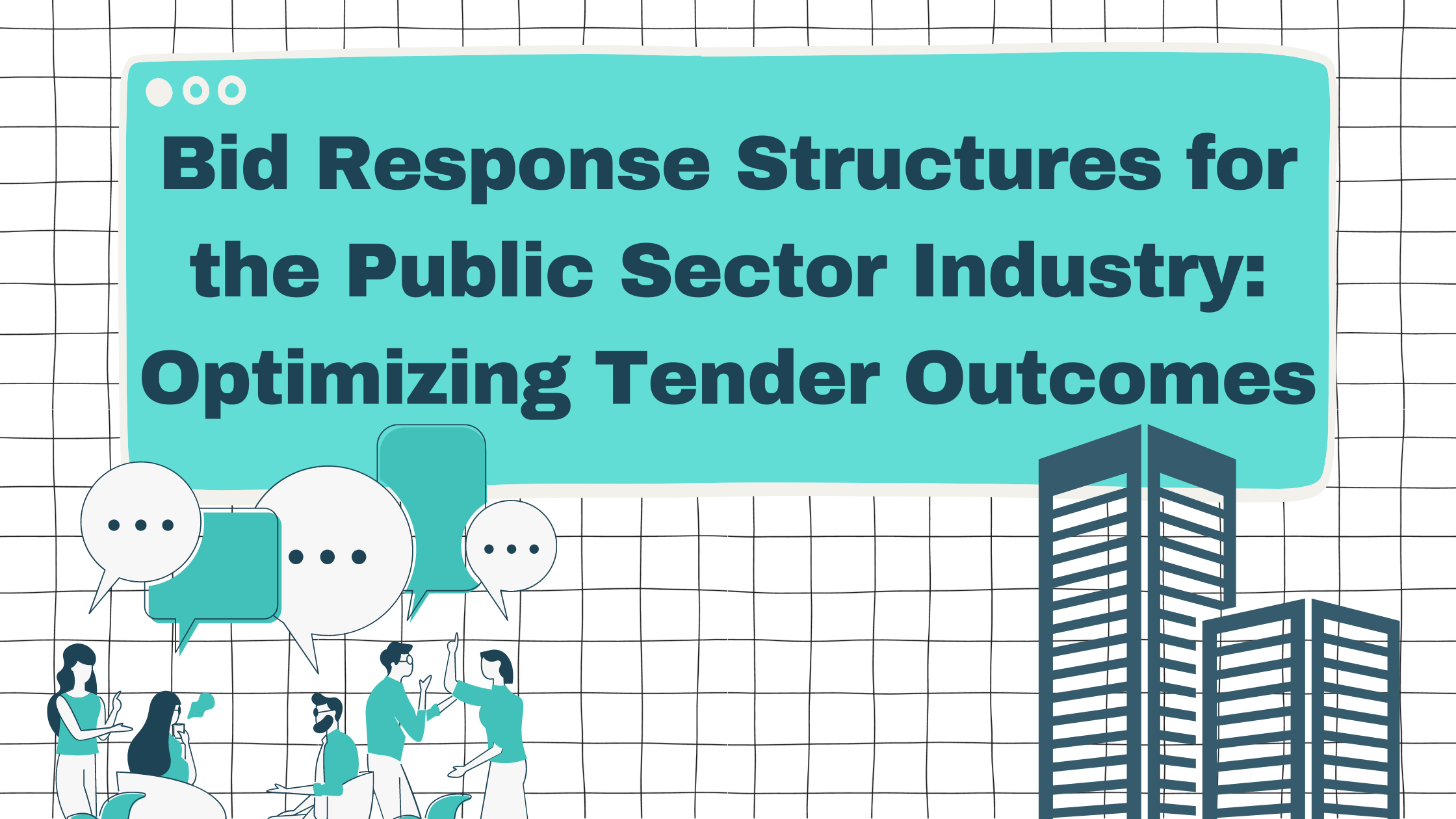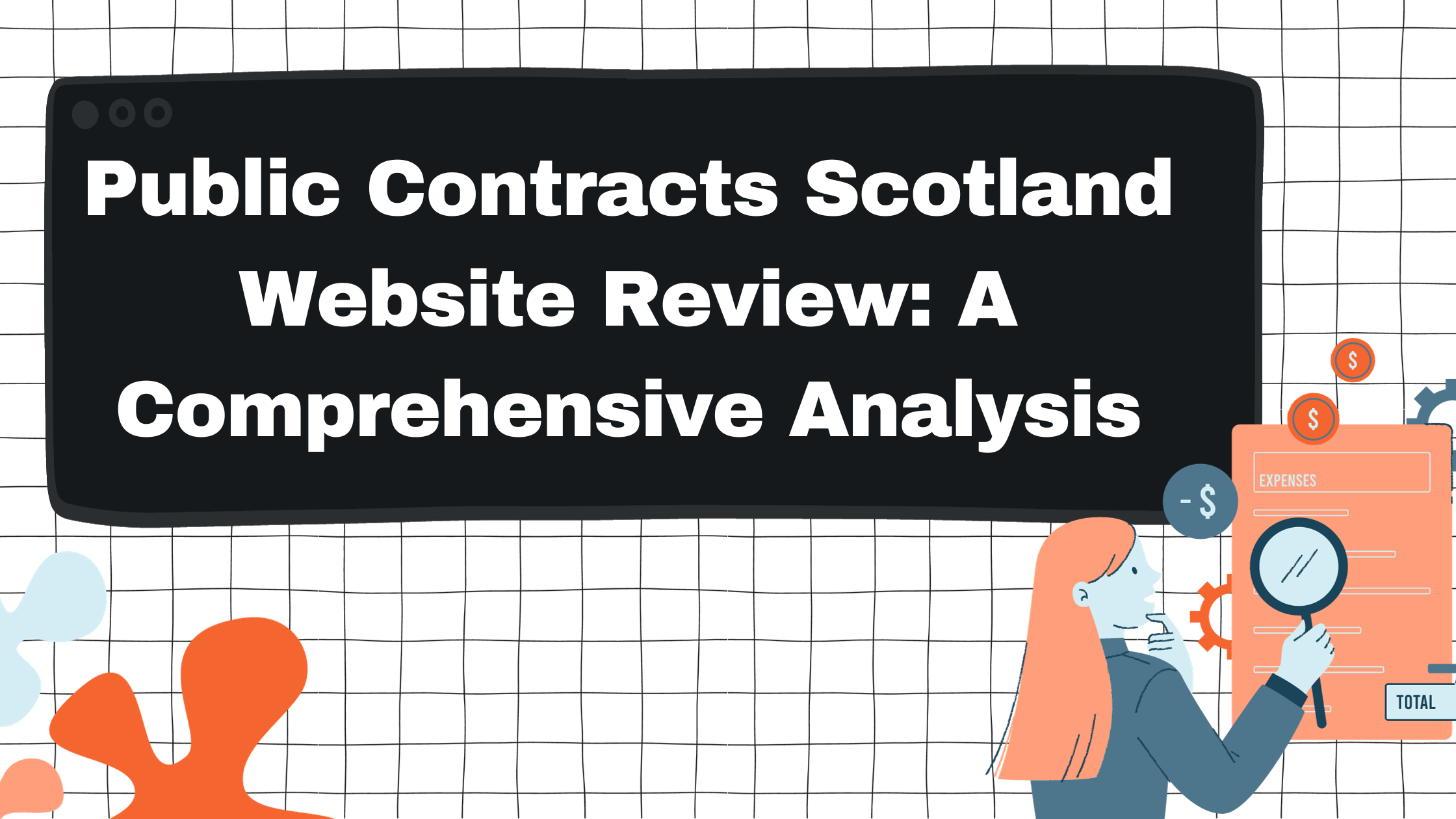Will AI Transform Proposal and RFP Writing Services? An Industry Perspective

Need Help with Your Bid?
Get in touch by filling out the form and one of our advisors will be in contact.
Contact UsThe rapid advancement of artificial intelligence (AI) has raised concerns in various industries, including bid writing. As AI continues to evolve, many professionals are left wondering whether their jobs are at risk. In the bid writing industry, understanding the impact of AI and its potential applications is crucial for professionals who want to stay ahead of the curve.
Bid writing, at its core, involves crafting persuasive responses to quality questions that serve as a bidder's proposal for delivering a project or contract. The process requires effective project management, strategizing, and clear communication. With AI's potential to automate and improve several aspects of the bid writing process, it's important to analyze how these technologies might affect the future of the profession.
AI has made its way into the bid writing industry, offering improvements in efficiency and accuracy through automated processes and advanced data analysis. By understanding the capabilities of AI and how it can be integrated into the bid writing process, industry professionals can adapt and stay competitive in an ever-changing technological landscape.
Impact of AI on the Bid Writing Industry
Automation of Routine Tasks
The advent of artificial intelligence (AI) and its various applications in the bid writing industry have led to the automation of many routine tasks. Technologies such as natural language processing (NLP) and machine learning enable AI to analyze and process vast amounts of text, significantly reducing manual effort. This capability allows bid writers to delegate repetitive work like parsing through request for proposal (RFP) documents and extracting important information, thus giving them more time to focus on strategic and creative aspects of the job.
Improved Productivity and Efficiency
AI-driven tools and platforms can greatly improve bid writers' productivity and efficiency. By leveraging machine learning algorithms and natural language generation (NLG) technologies, AI can generate draft responses to RFP questions and provide suggestions for improvement. This not only saves time but also helps maintain consistency and quality across responses. Furthermore, AI can support bid writers in managing deadlines and tracking progress, streamlining the overall bid management process.
Enhanced Creativity and Design
The use of AI in the bid writing industry extends beyond task automation and process improvement. Through deep learning techniques, AI can analyze previous bid submissions and successful proposals, identifying patterns and trends that can inform the content and design of future bids. This enables bid writers to create more engaging and visually appealing proposals, potentially increasing the likelihood of winning new contracts.
By integrating AI technologies such as NLP, machine learning, and natural language generation into the bid writing process, the industry is undergoing a transformative shift. This paradigm shift not only drives efficiency and productivity but also pushes bid writers to embrace new creative possibilities, ultimately enhancing the effectiveness of their proposals.
AI Tools and Technologies
Chatbots and Virtual Assistants
AI-powered chatbots and virtual assistants are playing a significant role in the bid writing industry. These tools can help automate and streamline the process of creating proposals, making it easier for bid writers to focus on crafting compelling narratives. For example, solutions like ChatGPT can analyze contracts, assisting bid writers with understanding and responding to key requirements.
In addition to contract analysis, chatbots can serve as an efficient communication tool between bid teams and stakeholders, ensuring that everyone is up-to-date on project progress and new information.
Grammar and Tone Improvement Tools
Maintaining proper grammar and tone is essential for bid writers to create persuasive and concise proposals. AI tools like Grammarly can not only identify and correct grammatical errors but also suggest improvements in writing styles to better engage readers. By leveraging Natural Language Processing (NLP) technologies, these tools help writers enhance clarity and readability in their bids, increasing the chances of winning projects.
Language Generation Technologies
AI-driven language generation technologies have the potential to revolutionize the bid writing process. Tools such as OpenAI's GPT-3 can generate human-like text, which can assist writers in composing persuasive and informative proposals. By using these technologies, bid writers can potentially save time and resources, allowing them to focus on more strategic aspects of their job.
While AI tools and technologies are making significant progress in the bid writing industry, it's crucial to remember that these tools are designed to augment the expertise and creativity of human writers, not replace them. As AI continues to advance, bid writers who adapt to these innovations and find ways to leverage them effectively will likely be better positioned to thrive in a competitive market.
AI Integration in Bid Management Process
Research and Planning
AI significantly impacts the research and planning phase of the bid management process by automating repetitive tasks and providing valuable insights. It helps bid writers analyze vast amounts of data, assess past proposals, and identify trends relevant to the new project. Furthermore, AI can offer customized recommendations on style and formatting to improve the overall appeal of the proposal. This results in higher productivity, time efficiency, and more effective tender responses.
Collaboration and Communication
The integration of AI in bid management also enhances collaboration and communication among team members. By automating processes like editing and spelling checks, it allows bid writers more time to focus on other critical aspects, like customer service and marketing efforts. In addition, AI tools can be used to share information through an organization, breaking down data silos and fostering efficient collaboration. These advancements contribute to a more connected and well-informed team working on a bid, ultimately increasing the chances of winning proposals.
Competitive Analysis
AI helps bid writers conduct a thorough competitive analysis to understand the position of their offering in comparison to their competitors. Adapting machine learning algorithms, AI tools can analyze various data sources, such as product reviews, blogs, industry reports, and job market trends. Bid writers can gain valuable insights on the competitive landscape and better understand the strengths and weaknesses of their proposals. This allows them to make informed decisions and optimize their bid strategies to maximize their chances of success.
Data Utilization
Leveraging AI in the bid management process results in optimized data utilization. AI platforms can efficiently collect, analyze, and store data from search engines, social networks, and other channels. This information can then be utilized to enhance the overall proposal by tailoring it to the target audience, improving marketing and communication efforts, and optimizing the overall bidder's capability. By leveraging AI and its vast analytical capabilities, bid writers minimize risks and potential disruptions, ensuring a comprehensive and competitive proposal.
In conclusion, the integration of AI in the bid management process significantly improves research and planning, collaboration and communication, competitive analysis, and data utilization. It leads to higher productivity, better decision-making, and increased chances of winning proposals. While AI may not entirely replace the role of a bid writer, it indeed plays an essential role in supporting them and helping them adapt to an ever-evolving job market.
Challenges and Risks of AI in Bid Writing
Trust and Reliability Issues
One of the main challenges in incorporating AI into bid writing is trust and reliability. AI-generated content, like ChatGPT, has made significant progress in content creation. However, it may sometimes lack accuracy and a full understanding of the context. This is particularly crucial in bid writing, where precise information, a deep comprehension of the requirements, and well-crafted responses are essential for success. Moreover, AI models may unintentionally generate biased or inappropriate content, raising challenges in sectors like advertising, legal services, and finance, where accurate and ethical content is indispensable.
The role of AI in synthesizing information also leads to concerns about biases in generative AI models. For instance, if an AI model is trained on biased data, there is a risk that it will perpetuate those biases in generated text. Organizations like IBM have been investing in research to mitigate these issues, but trust and reliability remain paramount concerns in adopting AI for bid writing, particularly for white-collar industries like banking and legal services.
Potential Job Disruption
As AI technology advances, it has the potential to disrupt various industries, including manufacturing and content creation. For example, AI-driven applications like Quill focus on text generation and are starting to affect the job market. As AI continues to improve in its capabilities, it might lead to job cuts and changes in traditional employment for professionals involved in bid writing, journalism, and other writing-intensive roles. This raises concerns for long-term employment prospects of those working in the bid writing industry.
As AI becomes more involved in creating content for cover letters and other written communication, professionals in these fields may need to adapt their skill sets to stay relevant. For instance, they can focus on tasks that require human judgment, emotional intelligence, or creativity that AI has yet to master. This transition offers both opportunities and challenges in sectors such as bid writing, where complex quality criteria and tight time constraints make it increasingly difficult for humans to deliver compelling proposals without AI assistance.
Moreover, investors and organizations embracing AI must also consider the potential downside of the technology. If bid writers' jobs are disrupted by AI, it may affect the livelihoods of those individuals, leading to economic uncertainty and an increased need for re-skilling and re-employment support in the bid writing sector.
In conclusion, while AI offers numerous advantages in automating the bid management process and handling complex tasks, there are risks and challenges associated with trust, reliability, and potential job disruption. Adopting AI in the bid writing industry requires striking a careful balance between embracing technology's benefits and addressing its limitations.
Frequently Asked Questions
How is AI impacting the bid writing industry?
AI is gradually impacting the bid writing industry by automating several aspects of the process, such as data analysis and drafting responses. AI-powered tools can help with strategizing, document control, and communication, significantly improving efficiency and reducing manual workload. This allows bid writers to focus more on strategic thinking and client engagement, enhancing their overall effectiveness.
To what extent can AI assist in tender writing?
AI can be particularly helpful in automating repetitive tasks and analyzing data to identify patterns and insights. This can lead to more efficient tender writing, with AI supporting bid managers in saving time and securing business. However, AI is not yet capable of completely replacing the creativity, strategic thinking, and human touch that are essential in crafting persuasive proposals.
What is the role of AI in improving bid writing quality?
AI can play a significant role in improving bid writing quality by providing more accurate and consistent responses to quality questions. By applying natural language processing and machine learning algorithms, AI can analyze past bids' performance, identify common pitfalls, and suggest improvements that can enhance the quality of bid writing and increase the chances of winning contracts.
Are bid writers facing a threat from AI?
While AI can indeed automate certain aspects of bid writing, it is unlikely to completely replace bid writers. AI is mainly a complementary tool that can enhance the bid writing process by tackling repetitive tasks, suggesting improvements, and providing valuable insights. Bid writers can leverage AI advancements to stay competitive in the market, focusing more on strategic thinking, creativity, and building strong client relationships.
How can bid writers adapt to AI advancements?
Bid writers can adapt to AI advancements by embracing technology and incorporating AI tools into their daily workflows. By leveraging AI features, they can improve their efficiency and produce higher-quality work. Bid writers should also continuously update their skills and knowledge in the industry to stay relevant, including understanding the latest AI capabilities and trends.
What are the benefits of AI integration in bid writing?
Integrating AI in bid writing can lead to numerous benefits, including:
- Faster and more accurate data analysis, making informed strategic decisions
- Improved efficiency in repetitive tasks, giving bid writers more time for creative and critical thinking
- Enhanced bid writing quality with AI-generated suggestions and best-practice guidelines
- Stronger competitive edge by utilizing advanced technologies to win contracts
By intelligently combining human expertise with AI-powered tools, the bid writing industry can experience significant advancements and successes.
Ready to start your search?
Get in touch by filling out the form to the right and one of our advisors will curate a personalised selection for you.
Get in touchBlogs. Guides. Helpful advice.

Mastering Proposal and RFP Writing for Government and Public Sector Opportunities

Proposal and RFP Writing Services: Enhancing Public Sector Tender Outcomes

.svg)